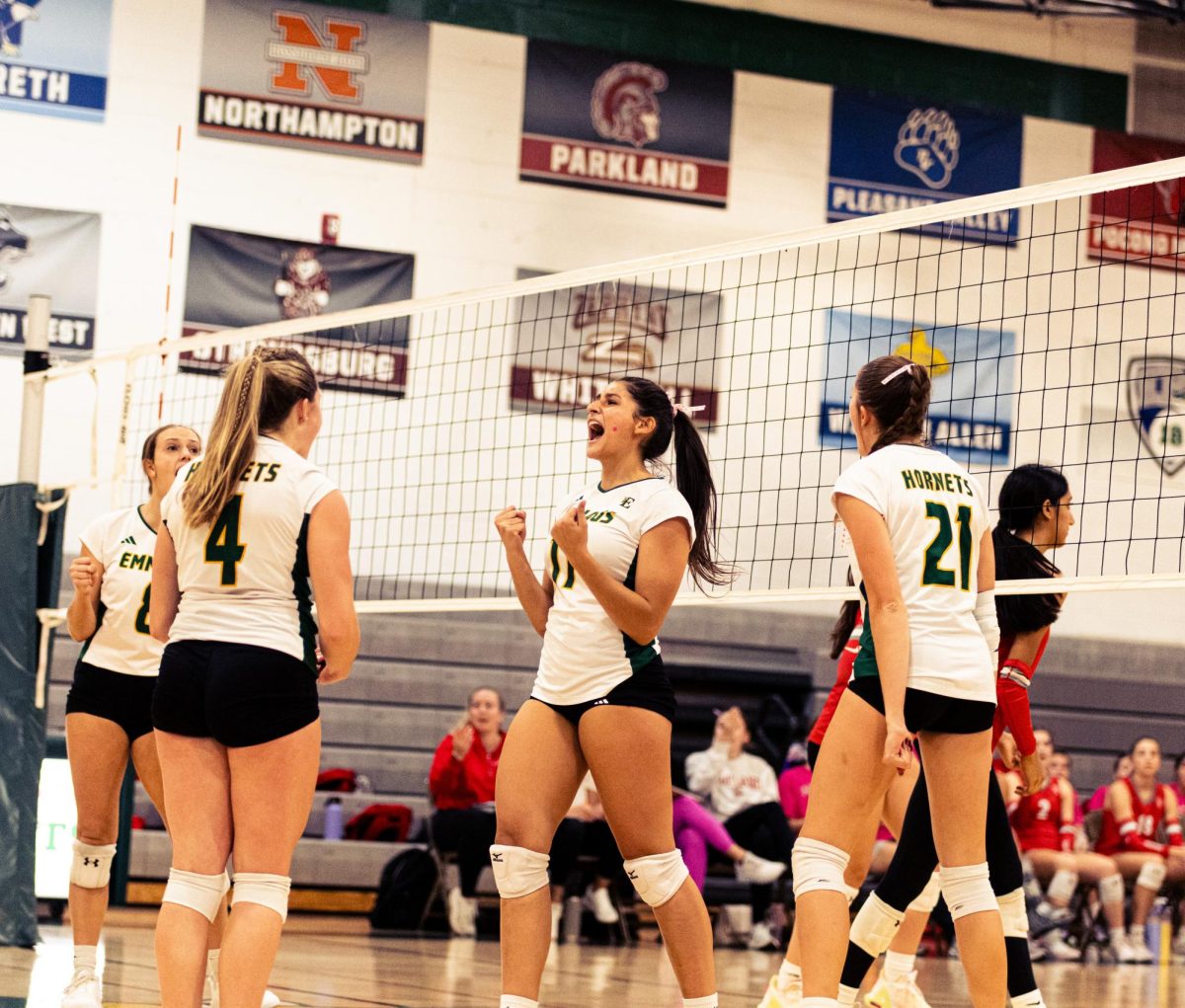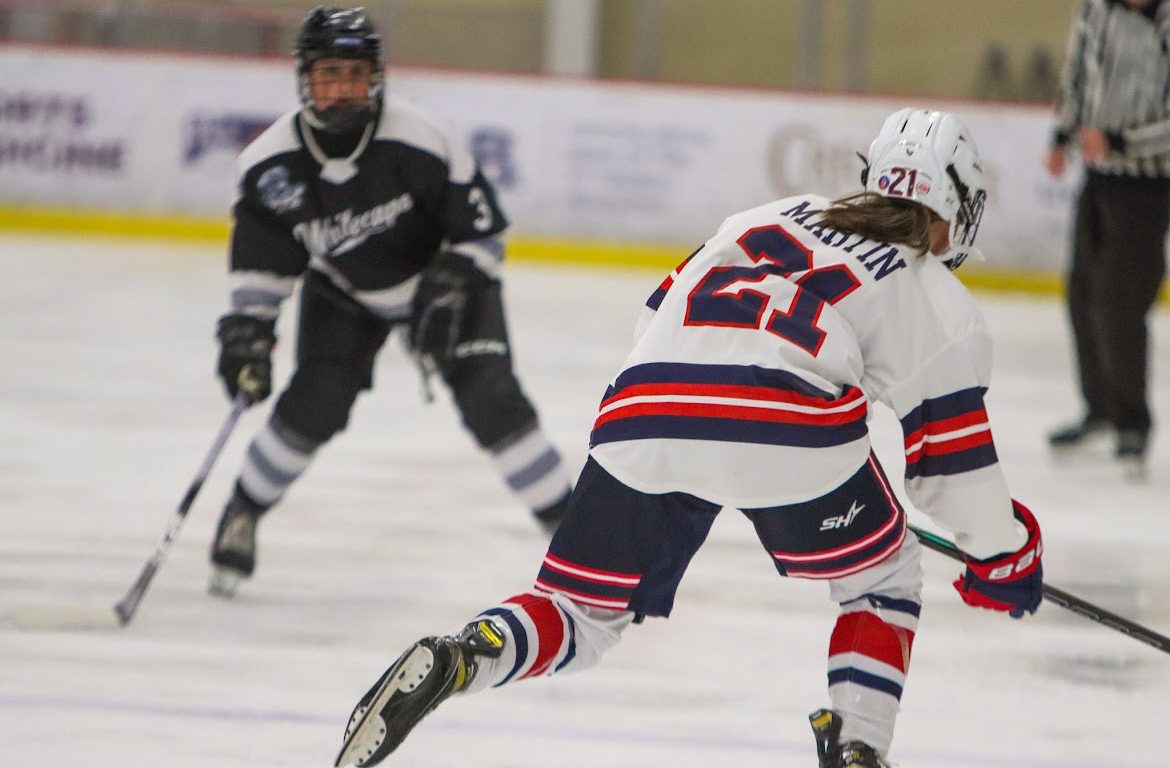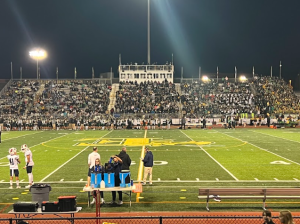Is being a multi-sport athlete worth it?
May 18, 2023
This previously ran in our April 2023 print issue.
Varsity athletics are a goal that many strive to participate in and succeed at, but shouldering multiple sports can prove to be challenging; with the immense sacrifice that is required, the negatives can multiply as quickly as the benefits.
Student-athletes can be seen on many levels: from those that participate in recreational athletics, to those that play their sport for a high school team. With the time that they may find between school work and practice, some of them fill that void with another sport. Never sitting still, multi-sport athletes bounce around from the first step of their day until long after the sun sets.
Sports come and go as many athletes test their interests to find where their true passion for athletics lies. With the increasing time commitment, sophomore Reilly Bechtel, who plays football, lacrosse, and wrestles, forced himself to decide which fall sport he wanted to pursue as he entered high school.
“I stopped playing soccer because I just wanted to play football,” Bechtel said. “I think it kind of took priority because they are both in [the] fall. I played soccer up until seventh or eighth grade, but then I just ended up playing football.”
Multi-sport athletes crave continuous athletic activity and will do anything to not remain stationary. Bechtel has had his fair share of struggles budgeting his time between his numerous sports. Much of the time, these decisions come down to not being able to attend all of the practices or not being able to be in multiple places at once.
“Scheduling can be difficult,” Bechtel said. “I can’t go to football because I have things with lacrosse, and I can’t go to wrestling practice because of lacrosse right now either.”
Balancing his sports throughout the year, as one ends and another begins, provides consistency to the workload Bechtel faces. However, that does not make it any easier to accomplish.
“You need to be really motivated and you have to want to do it,” Bechtel said. “Really managing your work well and knowing what you have to do and when you have to do it, so you don’t fall behind because if you fall behind you’re screwed.”
Junior Ava Rincon, who runs for both Emmaus cross country as well as track and field, found herself in a conflicted situation as her interests shifted from a childhood pastime to a different passion that will follow her into college.
“I used to play softball for like eight or nine years, but I just lost interest and stopped playing,” Rincon said. “I really like [running]. It’s fun for me and I met a lot of my friends through it, and it’s also a stress reliever for me.”
Along with the many other athletes in high school, Rincon acknowledges that performing well in the classroom is just as important as in her sports. Without adhering to set academic thresholds, problems of eligibility can arise, but Rincon uses these standards as additional fuel to excel in both fields.
“Being a multi-sport athlete holds you accountable because if you’re not passing your classes you can’t participate,” Rincon said. “Physically, since I run all year round, it definitely helps me with both sports because I’m always in shape and ready to run.”
Being physically healthy is a common goal of people of all ages, but being prepared to compete at a high level in the realm of athletics is steps above simple wellbeing. When partaking in multiple sports, an athlete’s body can begin to deteriorate due to overuse if not taken care of properly.
“I struggle with fueling right and making sure I find time to do the things I have to
do to improve. Like, I don’t have a lot of time to stretch after school,” Rincon said. “It’s much easier to get injured: like stress fractures, and just being exhausted all the time [when you do not take care of your body properly].”
While the work is far from easy, enjoying the process and smiling through even the worst of moments is key; to both maintaining the longevity of success and positive mental health. The teammates and community that surround multi-sport athletes through the process are the unsung heroes of the players’ stories.
Senior Sophia Iacobelli participated in both the Emmaus swim and dive team (as well as the track and field team) until her sophomore year, when she decided to only continue to run in the spring. Regardless of her decision, the people Iacobelli has met made it all worthwhile.
“I think [being a multi-sport athlete] is really good for helping you meet new people and branch out to find new communities to be a part of,” Iacobelli said. “A lot of sports have completely different crowds whether people realize it or not, so just by doing more than one you can meet so many new people … I don’t regret swimming at all because I was able to make a lot of really good friends.”
The differences were glaring in Iacobelli’s final two years at Emmaus, as she shifted from participating in two sports to one, now having the time and ability to direct more attention to perfecting her performance in track and field.
“It was really draining both physically and mentally, and it’s just a big time commitment,” Iacobelli said. “It’s hard to prioritize anything other than athletics… because I haven’t had to balance two different things in the same amount of time, I’ve been able to focus more on my individual events and commit more to them and not have to worry about splitting practice times.”
Being a multi-sport athlete has its challenges in balancing time and tasks, but the social and health benefits that accompany the commitment can’t be matched. The dedication necessary to be successful is not possessed or desired by all, but those who step up to the obstacles that come their way shine bright on and off the field.












